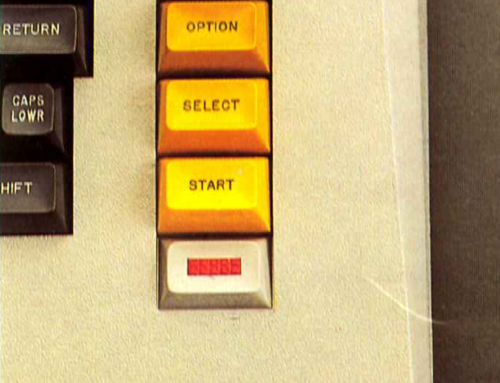A few weeks ago, I was called out on something I said in one of my recent blog posts. In talking about the power of manifesting, I said we often get what we ask for—whether we’re asking for it consciously or unconsciously. The corollary is, if we’re manifesting things we don’t like—like loneliness, illness, or struggle—it could be because we’ve unconsciously asked for it.
One of our readers pointed out that this seemed like “blaming the victim” mentality. As she said, “While it is a good thing to take responsibility for our actions, conscious and unconscious, sometimes life happens. Despite our best efforts, we cannot control everything. Life is a lot more random and complex than just saying that if you wish and work for something, it will happen. Let’s not burden people further who are suffering by telling them they’re not trying hard enough.”
Valid points all. Which is why I want to backtrack a bit to put a little more context into what should not have been a throwaway line in a blog post.
A fine balance
First, as regular readers know, I don’t think we can control the external things that come our way. The only thing we control is our response to them. That’s particularly true when it comes to illness. I do not believe that our thoughts—conscious or unconscious—make it more or less likely that we’ll contract a serious disease. Lots of people embrace unhealthy physical and mental habits and never get sick. Lots of others adhere to the healthiest of lifestyles and still succumb to illness.
On the flip side, I think it’s critical that we be brutally honest with ourselves about what we may unconsciously be asking for. Sometimes negative things—including loneliness, illness, and struggle—manifest because we’ve invited them, even if we didn’t mean to. If our fear keeps pushing people away, if our unconscious eating habits make us sick, if our refusal to face our own demons makes life more challenging for us, then we may be unintentionally playing a role in causing our own pain. I know because I’ve engaged in some of that behaviour myself.
Victims of ourselves
Roughly 10 years ago, I realized I needed a better map of my internal landscape if I hoped to truly understand my emotional blockages. Therapy had made a huge difference in helping me uncover many unconscious thought patterns, but I felt it was time for more soul work. So I decided to attend a 12-day Vipassana meditation retreat. On day 1, they take away your car keys, your phone, any non-essential medications, and any reading materials. You’re assigned a room in a gender-specific dormitory with a bed, dresser and lamp. Rules include: no talking; no eye contact; no physical contact; no exercise; no reading. First meditation is at 6 am, lights out is at 10 pm, and there are several rounds of hours-long meditation sessions throughout the day. You eat two meals—lunch and dinner—which are vegan and contain mostly raw foods. It ain’t The Ritz.
By day 3, my mind ran out of new stimuli to process and everything inside got super quiet. It was heaven. My brain hated it. By day 4, it started telling me why I needed to leave. My business wouldn’t last without me. I was ignoring my kids. My husband would leave me. Honestly—that’s where I went.
On day 5, I broke down and made an appointment to speak with the instructor. I told him I needed out. He tried to get me to stay: “Do you want your kids to think you’re a quitter?” At that point, I couldn’t have cared less what my kids thought. I just wanted to go home. After several minutes, he finally conceded. To this day, I remember the wash of relief that flowed through my body. As I got up to leave, though, he came up with his parting shot. “You know what your problem is?” he asked. Willing to listen to anything (heck, I was getting my keys back!), I turned around and said, “What?” And he said: “You’re addicted to your misery.”
He was right. I stayed.
Bringing the unconscious to light
If you are struggling, suffering, hurting, I do not ever want to imply that you’re not trying hard enough. We all do the best we can, and pain is sometimes an unavoidable part of life. I do, however, want to challenge you to consider if you are somehow unconsciously inviting that pain. I was. When I admitted that I preferred misery to joy—because it was familiar, because it made me comfortable, because it absolved me from changing—I was finally able to free myself. I was able to stop unconsciously asking for misery, and make more deliberate choices about what I wanted to attract into my life.
So, no, we’re not responsible for all the difficulties we manifest. Sometimes life happens. The trick is ascertaining what is—and is not—within our power to change.





Now this is a post I can get behind! Thank you!
Actually, thank YOU for giving me a chance to refine my thinking and clarify my message.
I’d like more specifics on your enjoyment of misery vis a vis now enjoying “non-misery”, and certainly qualifying drama, misery as different than real misery, depression, anxiety due to illness
Oh, so just a quick reply, right? 🙂 There’s a history of mental illness in my family. When the instructor at Vipassana accused me of being addicted to my misery, I sat back down because I realized that if I kept following that path, I would become my mother. I think it actually marked the moment when I consciously decided to pursue consciousness. For most of my early life, my mind was like a jumbled cloud. Whenever I hit up against anything emotionally uncomfortable, my knee jerk reaction was pain. I’d either cry or rage (sometimes both, for fun). I was, quite literally, miserable. And totally attached to it, because I had no idea it could be any other way. When I began to realize it was in my power to part my inner clouds and let some sunshine through, it was an actual epiphany. And it’s what started me on the path to real change. This was not an overnight shift. I was still in therapy at the time, and that helped. I started a serious meditation practice, on top of a committed yoga practice. I read tons of self-help books and took courses. And I learned that I didn’t have to listen to the mental voice that kept exhorting me to react to the world with non-acceptance. I chose to respond to uncomfortable situations by looking for the humour in them, rather than the misery. I tracked the pattern of my thoughts to prevent them from veering off into drama queen territory. And I shouldn’t be talking in the past tense. I still do those things. I pay attention to what I’m thinking so that I don’t unconsciously heap pain on top of situations beyond my control. I ask the universe for grace. And because of this practice, I find joy way more often than I ever thought possible. Because it’s what I’m seeking now. Consciously. Does that make sense?
Wonderful acceptance and embracing your nature and setting aside the negativity is an impressive and powerful use of your emotional and mental powers. ????
Impressive and thought provoking. Romanticizing drama springs to mind…
Excellent as usual